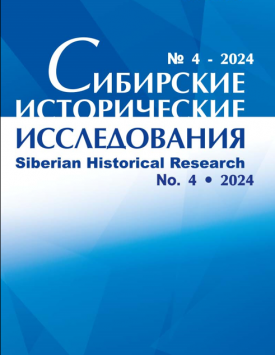Recent Books on Digital Research Methodology for Social Scientists: An Overview
Представлен краткий обзор последних публикаций по цифровым методам в социальных и гуманитарных науках, написанных ведущими специалистами в области современных исследований цифровых медиа. Обсуждаемые методы часто подразделяются на две основные группы. Первая относится к уникальным цифровым методологиям, применяемым исследователями для понимания специфики цифровых технологий и их роли в таких дисциплинах, как исследования науки и техники, техноантропология, антропология и социология медиа и т.д.; вторая группа объединяет вполне традиционные методы изучения общества и культуры, которые могут использоваться в отношении новых кибермедиа в результате их адаптации и трансформации к тому, что воспринимается (по сравнению с классическим полем и местами полевых исследований) как радикально новая среда. Обзор ориентирован на текущие потребности цифровых антропологических исследований, хотя и не ограничивается социокультурной антропологией и этнологией. Поскольку каждая из обсуждаемых публикаций и/или методов адаптирован/а к определенному кругу объектов или предметов исследования, образующих несколько тематических областей, их включение в данный обзор учитывает такие темы, как киберидентичность, интересы и поведение пользователей, цифровое опосредование, этика онлайн-исследований, а также социальные и технологические инновации и изменения. Автор заявляет об отсутствии конфликта интересов.
Ключевые слова
цифровые медиа,
кибер-идентичность,
цифровые технологии,
культура повседневности,
методы онлайн-исследований,
цифровая антропология,
интернет-исследованияАвторы
| Соколовский Сергей Валерьевич | Институт этнологии и антропологии РАН | доктор исторических наук, главный научный сотрудник | SokolovskiSerg@gmail.com |
Всего: 1
Ссылки
Ardevol E., Gomez-Cruz E. (2014) Digital Ethnography and Media Practices (ch. 22). In Darling-Wolf F. (Ed.). Vol. VII. Research Methods in Media Studies. John Wiley & Sons (Valdivia A.N. (Gen. ed.) The International Encyclopedia of Media Studies, in 7 vols.). URL: https://onlinelibrary.wiley.com/doi/book/10.1002/9781444361506.
Barney D., Coleman, G., Ross, C., Sterne, J., & Tembeck T. (Eds.). (2016) The Participatory Condition in the Digital Age. Minnesota: University of Minnesota Press.
Boellstorff T. (2008) Coming of Age in Second Life: An Anthropologist Explores the Virtually Human. Princeton: Princeton University Press.
Boellstorff T. (2012) Rethinking Digital Anthropology. In Horst, H., & Miller, D. (Eds.). Digital Anthropology. N.Y.: Berg. pp. 39-60.
Boellstorff T., Nardi, B., Pearce, C., & Taylor, T.L. (2012) Ethnography and Virtual Worlds: a Handbook of Method. Princeton: Princeton University Press.
Boellstorff T., & Maurer B. (2015) Data, Now Bigger and Better! Chicago: Prickly Paradigm Press.
Boellstorff T., & Soderman B. (2024) Intellivision. How a Videogame System Battled Atari and Almost Bankrupted Barbie. Cambridge, MA: MIT Press.
Coleman E.G. (2010) Ethnographic approaches to digital media. Annual review of anthropology, 39(1), pp. 487-505.
Coleman E.G. (2012) Phreaks, hackers, and trolls. In M. Mandiberg (ed.). The social media reader. N.Y.: New York University Press. pp. 99-119.
Coleman E.G. (2013) Coding freedom: The ethics and aesthetics of hacking. Princeton: Princeton University Press.
Coleman E.G. (2015) Hacker, hoaxer, whistleblower, spy: The manyfaces of Anonymous. N.Y.: Verso books.
Dawson C. (2020) A-Z of digital research methods. N.Y.: Routledge.
Ferraris M. (2014) Where are you? An Ontology of the Cell Phone. N.Y.: Fordham University Press.
Fielding, N.G., Lee, R.M., & Blank, J. (Eds.) (2018) The SAGE Handbook of Online Research Methods. L.: SAGE.
Fischer, M. (1994). Applications in Computing for Social Anthropologists. L.: Routledge.
Foster R.J., & Horst, H. (Eds.) (2018) The Moral Economy of Mobile Phones: Pacific Island Perspectives. Acton: ANU Press.
Hine, C. (2000) Virtual Ethnography. L.: Sage.
Hine C. (2015) Ethnography for the Internet: Embedded, Embodied and Everyday. L.: Bloomsbury.
Hine C. (Ed.). (2005) Virtual Methods. Issues in Social Research on the Internet. N.Y.: Berg.
Hjorth L., Horst, H., Galloway, A., & Bell, G. (Eds.) (2017) The Routledge Companion to Digital Ethnography. N.Y.: Routledge.
Horst H. (ed.) (2009) Hanging Out, Messing Around and Geeking Out: Kids Living and Learning with New Media. Cambridge, MA: MIT Press.
Horst H., & Miller, D. (2006) The Cell Phone: An Anthropology of Communication. Oxford: Berg.
Horst H., & Miller, D. (2012) Digital Anthropology. N.Y.: Berg.
Ito M., Baumer, S., Bittanti, M., boyd, d., Cody, R., Herr-Stephenson, B., Horst, H., Lange, P., Mahendran, D., Martmez, K., Pascoe, C., Perkel, D., Robinson L., Sims, C., & Tripp, L. (2009) Hanging Out, Messing Around, and Geeking Out: Kids Living and Learning with New Media Cambridge, MA: MIT Press.
Kelty, C. (2008). Two Bits. The Cultural Significance of Free Software. Durham: Duke University Press.
Marcus G. (2012) Foreword. In Boellstorff T. e.a. (Eds.). Ethnography and Virtual Worlds: a Handbook of Method. Princeton: Princeton University Press, pp. XIII-XVII.
Markham A. (1998) Life Online: Researching Real Experience in Virtual Space. N.Y.: Altamira press.
Markham A., & Baym, N, (Eds.) (2009) Internet Inquiry: Conversations about Method. L.: Sage.
Markham A., & Tiidenberg, K. (Eds.) (2020) Metaphors of Internet: Ways of being in the age of Ubiquity. L.: Peter Lang.
Neumaier A. (2022) Digital Ethnography. In Engler, S, & Stausberg M. (Eds.). The Routledge Handbook of Research Methods in the Study of Religion. N.Y.: Routledge. pp. 217-228.
Pink S., Horst, H., Postill, J., Hjorth, L., Lewis, T., & Tachi J. (2016) Digital Ethnography: Principles and Practices.
Snee H., Hine, C., Morey, Y., Roberts, S., & Watson, H. (Eds.) (2016) Digital Methods for Social Science. An Interdisciplinary Guide to Research Innovation. Houndmills: Palgrave Macmillan.
Valdivia A.N. (Gen. ed.) (2014) The International Encyclopedia of Media Studies, in 7 vols. L.: John Wiley & Sons.


 Вы можете добавить статью
Вы можете добавить статью